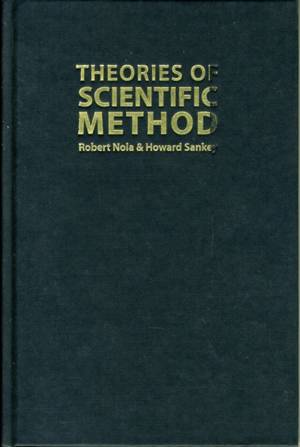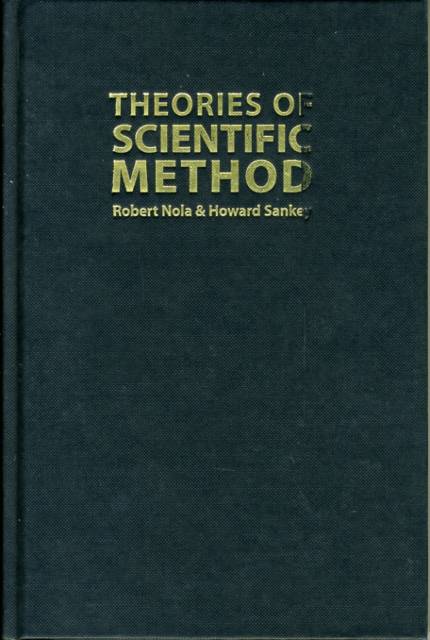
- Afhalen na 1 uur in een winkel met voorraad
- Gratis thuislevering in België vanaf € 30
- Ruim aanbod met 7 miljoen producten
- Afhalen na 1 uur in een winkel met voorraad
- Gratis thuislevering in België vanaf € 30
- Ruim aanbod met 7 miljoen producten
Zoeken
Omschrijving
What is it to be scientific? Is there such a thing as scientific method? And if so, how might such methods be justified? Robert Nola and Howard Sankey seek to provide answers to these fundamental questions in their exploration of the major recent theories of scientific method. Although for many scientists their understanding of method is something they just pick up in the course of being trained, Nola and Sankey argue that it is possible to be explicit about what this tacit understanding of method is, rather than leave it as some unfathomable mystery. They robustly defend the idea that there is such a thing as scientific method and show how this might be legitimated. This book begins with the question of what methodology might mean and explores the notions of values, rules and principles, before investigating how methodologists have sought to show that our scientific methods are rational. Part 2 of this book sets out some principles of inductive method and examines its alternatives including abduction, IBE, and hypothetico-deductivism. Part 3 introduces probabilistic modes of reasoning, particularly Bayesianism in its various guises, and shows how it is able to give an account of many of the values and rules of method. Part 4 considers the ideas of philosophers who have proposed distinctive theories of method such as Popper, Lakatos, Kuhn and Feyerabend and Part 5 continues this theme by considering philosophers who have proposed naturalised theories of method such as Quine, Laudan and Rescher. This book offers readers a comprehensive introduction to the idea of scientific method and a wide-ranging discussion of how historians of science, philosophers of science and scientists have grappled with the question over the last fifty years.
Specificaties
Betrokkenen
- Auteur(s):
- Uitgeverij:
Inhoud
- Aantal bladzijden:
- 240
- Taal:
- Engels
- Reeks:
Eigenschappen
- Productcode (EAN):
- 9781844650842
- Verschijningsdatum:
- 1/11/2006
- Uitvoering:
- Hardcover
- Formaat:
- Genaaid
- Afmetingen:
- 156 mm x 233 mm
- Gewicht:
- 452 g

Alleen bij Standaard Boekhandel
+ 364 punten op je klantenkaart van Standaard Boekhandel
Beoordelingen
We publiceren alleen reviews die voldoen aan de voorwaarden voor reviews. Bekijk onze voorwaarden voor reviews.











